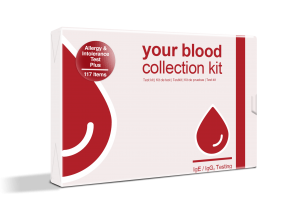Seasonal allergies, which are also known as allergic rhinitis or hay fever, occur in a particular season. Seasonal allergies happen during certain months of the year, usually when grass, trees, and weeds release pollen (tiny particles) into the air for the purpose of fertilization. Seasonal allergy symptoms appear when your immune system overreacts to pollen. This could be a particular type of pollen, like grass, specific trees, or weeds. Hay fever affects people because for fertilization to occur, pollen has to be carried by wind which makes it come in contact with anyone. Pollen is the most common cause of seasonal allergies {1}.
If you suffer from allergic rhinitis, your immune system releases histamines into the bloodstream upon contact with allergen particles to fight off these “invaders,” even though unharmful. When your body releases histamines when you don’t have a virus or bacteria, it results in allergy symptoms. A person can be allergic to more than one type of pollen. The type of pollen you’re allergic to determines when you’ll experience seasonal allergies because they all pollinate during different times of the year. Even though it’s impossible to suffer from seasonal allergies during winter, you can still suffer from allergic rhinitis because indoor allergens can affect you in winter when you’re spending time indoors. If you live in a geographical location that doesn’t experience seasons, you can suffer from allergic rhinitis throughout the year.
Signs and symptoms of seasonal allergies
Seasonal allergies are cold-like symptoms that develop at a specific time of the year and only stop when that season ends. Allergy symptoms come on and last until you’re no longer exposed to the allergens. Seasonal allergy symptoms include:
- Sneezing
- Itchy nose or throat
- Nasal congestion
- Clear, runny nose
- Postnasal drip
These symptoms are often accompanied by itchy, watery, or red eyes, also known as allergenic conjunctivitis. You may have allergies that trigger asthma if these symptoms consist of wheezing, coughing, and shortness of breath.
Causes of seasonal allergies
When you’re suffering from allergic rhinitis, the cause depends on the time of year. Different seasons have varying plants pollinating, which means you’ll suffer from hay fever depending on when specific plants, grass, or trees pollinate.
- Spring: Trees are the common cause of seasonal allergies in spring birch tree being the most common tree. Others include horse chestnut, cedar, alder, willow, and poplar.
- Summer: The name hay fever comes from the hay-cutting season, which is in spring. However, allergens present in summer are grass like ryegrass, timothy grass, and certain types of weeds.
- Autumn: This is ragweed season from the genus Ambrosia and contains over 40 species worldwide. Other plants that pollinate this season include nettles, mugworts, sorrels, fat hens, and plantains.
- Winter: All outdoor allergens become dormant in winter, relieving many people suffering from seasonal allergies. However, the cold weather means we spend a lot of our time indoors, which exposes us to indoor allergens. These include pet dander, cockroach droppings, dust mites, mould, and other indoor allergens. It is easier to remove indoor allergens than to deal with outdoor allergens.
Seasonal allergy test
You may notice you have seasonal allergies when you experience these allergic rhinitis symptoms at a specific time every year. They’re commonly viewed as cold-like symptoms that won’t go away. While a cold goes away in less than two weeks, allergic rhinitis symptoms don’t, not unless you stop being exposed to the allergens. So, the best way to nail down the allergen causing your symptoms is by taking an Allergy Test. This test checks for allergens in your environment, food, and drinks. So you’ll be able to identify the specific allergen that causes your symptoms. Once you do, you can take precautions to prevent further suffering from allergy symptoms during that season when pollination occurs. You can easily order this allergy test online and receive it within three days, and once you’ve sent your sample to the lab, you’ll get an email with your results within seven days.
Treating seasonal allergies
There are many ways of managing seasonal allergies. Even though you can’t make the allergies disappear, you can treat the symptoms. The most important of knowing how to manage allergy symptoms is knowing exactly what you’re allergic to, and that’s why we recommend taking an allergy test. When you know which allergens bother you, you will know which seasons you need to keep your vigilance up and protect yourself from these allergens.
During allergy season, you must keep your windows closed to prevent pollen from being swept into your house with the wind. Most seasonal allergies occur during the warm months of the year, so you can instead use air conditioning to cool your house down instead of fresh air. If it is possible to stay indoors during these seasons, it will help avoid contact with pollen. If you leave the house, you must clean your hands or shower and change clothes immediately after you come indoors to avoid bringing in allergens from outside. When you can’t avoid going outside, wear a dust mask to reduce exposure. It is also better to avoid cigarette smoke as it triggers hay fever worsening the symptoms.
Reducing exposure to allergens is a good way of avoiding seasonal allergy symptoms; however, when you can’t and you experience allergic rhinitis symptoms, there are different ways you can treat these symptoms. These include:
- Nasal steroids
- Allergy shots
- Oral, nasal, and eye antihistamines
However, it is necessary to note that some allergy medications may have symptoms like confusion, dizziness, and drowsiness.
Final thoughts on seasonal allergy testing
Seasonal allergies can be uncomfortable; managing them through medication and avoidance can help you get through the season smoothly. Even though winter doesn’t support pollination, you can still suffer from winter allergens, including a myriad of indoor allergens that you get acquainted with now that you’re sending more time indoors. However, taking an Allergy Test will help you know which allergens your immune system is reacting to, and you can now work on avoiding them or managing them in ways you can.
References
- Pollen allergy. (2015). (https://aafa.org/allergies/types-of-allergies/pollen-allergy/)



